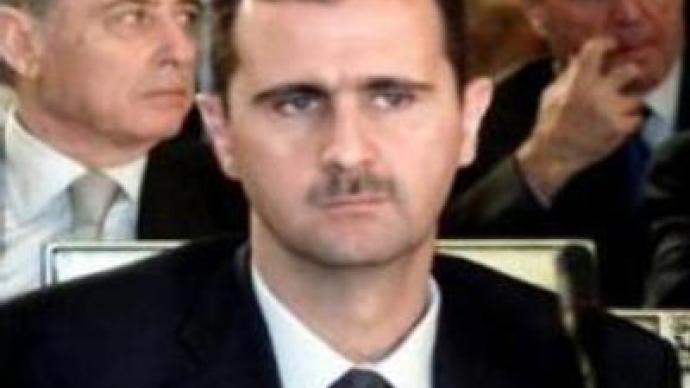Syrian President - solo candidate in elections

Millions of Syrians have been voting in the country's presidential elections. It is widely expected that incumbent Bashar al-Assad, who is the only candidate, will be re-elected for a second seven-year year term.
On the eve of a national referendum, the streets of the Syrian capital, Damascus, have been overwhelmed by flags, banners and posters expressing allegiance to the country's president. Unchallenged, Mr al-Assad is widely expected to get more than the 51% of votes required by law to enable the president to secure a second term. Tremendous efforts are being made by the authorities to ensure maximum voter turnout, with al-Assad being portrayed as a key element in Syria's stability and prosperity. The 41-year-old British-educated eye doctor became president seven years ago after the death of his father, President Hafez Assad. On the surface, Syria looks starkly different than it did in 2000 when he took office – trendy cafes, private universities and banks have sprung up. But as most of the nearly 13 million Syrian voters prepare to grant him another mandate, regime critics say not much has truly changed. They point to rampant corruption, mass arrests and a series of foreign policy blunders that have served to further isolate the Arab republic in the eyes of the world. Syrian troops were forced out of Lebanon following the 2005 assassination of former Lebanese Prime Minister Rafik Hariri. President Assad’s political troubles are likely to be compounded once the UN establishes an international tribunal to try Rafik Hariri's killers. The international isolation has tempered, though, most recently with visitors to the Syrian capital by European and U.S. officials, including one by U.S. House Speaker, Nancy Pelosi. In early May, U.S. Secretary of State Condoleezza Rice held talks with Foreign Minister Walid Moallem in Sharm el-Sheikh, Egypt. And now there is a growing consensus within the Israeli government that Syria is serious about resuming negotiations with the Jewish state.
You can share this story on social media:












